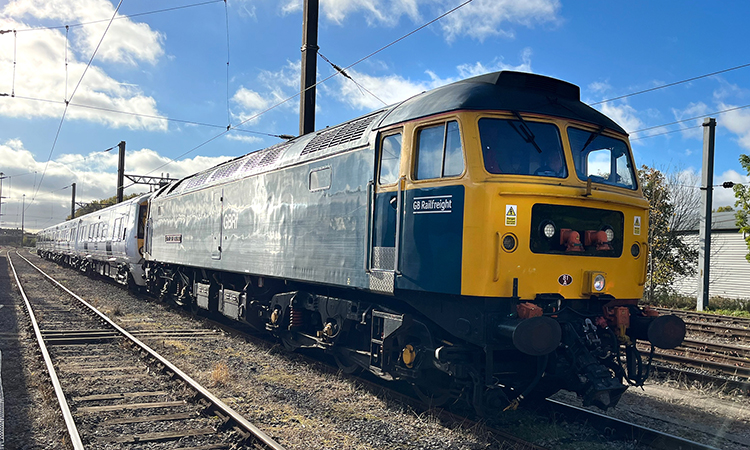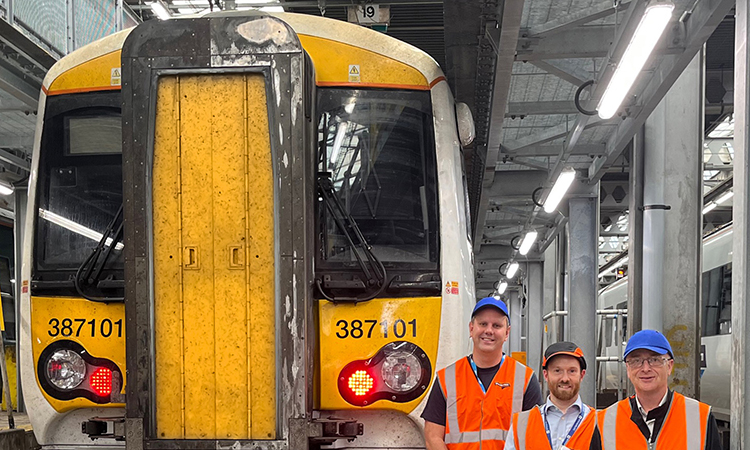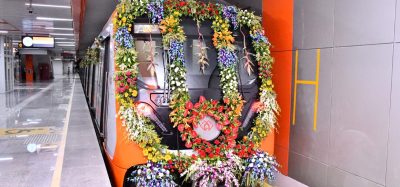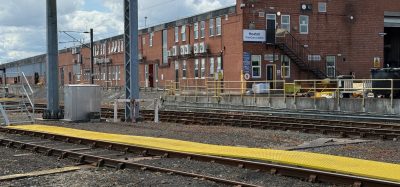GTR Class 387 sent for UK’s first major fleet retrofit for ETCS in-cab signalling
Posted: 25 October 2022 | Elliot Robinson (Editorial Assistant - Global Railway Review) | No comments yet
GTR has sent its first Class 387/1 Great Northern train to be retrofit with ETCS in-cab signalling as part of the East Coast Digital Programme.


Credit: GTR
Govia Thameslink Railway (GTR) has sent its first Class 387/1 Great Northern train to be upgraded to ETCS in-cab signalling as part of the East Coast Digital Programme designed to reduce delays and enable a more reliable service for passengers. The train will be retrofitted to include the latest iteration of ETCS in the UK (BL3 R2, also referred to as version 3.6.0) and ECDP v1.1 specification and will lay the foundations for the ‘Electrostar’ fleet of trains should ETCS be expanded across other routes in the UK.
Installing ETCS
Unit 387101 was hauled by GBRf from GTR’s Hornsey Depot in north London to Worksop Depot. Alstom will install the Atlas 3 ETCS system. This incorporates:
- A new digital driver’s dashboard
- A new AWS/TPWS system
- Doppler radar and ETCS antennae beneath the soleplate
- A European Vital Computer, the main computer, fitted at the body end of the first carriage
- Software for a new train control monitoring system
- Onboard ETCS software – in line with the latest revision of the ETCS standards.
The train will have static testing at Litchurch Lane manufacturing site in Derby prior to dynamic testing at speeds of up to 110mph, on Network Rail’s RIDC Melton test track. All changes must be independently approved because this counts as a major modification to a rail vehicle. The ‘first-in-class’ unit is set to return in July 2023, after which GTR will fit the remaining 28 387/1 units at its in-house depot in Hornsey, north London.
“This is a watershed moment for us on the digital programme team,” Aaron Meakin, ERTMS Fleet Project Manager for GTR, said. “We’ve worked long and hard to get us to a place where we’re ready for this retrofit which will make these trains some of the most advanced in the UK for ETCS.”
“This important milestone marks a key moment for the project and is a testament to the hard work of the Alstom team and the collaboration with our partners at GTR, Porterbrook and Network Rail,” Aaron Weeks, Project Director for Alstom, said. “At Alstom we are proud to be at the forefront of the digitisation of the UK rail network and look forward to continued support of the ECDP in the coming years through the supply of our Atlas ETCS Onboard signalling product.”


From left are: Govia Thameslink Railway ERTMS Fleet Project Manager Aaron Meakin, Alstom Lead Project Manager Ian Coleman and Porterbrook Fleet Engineer Mick Ridgeway
Related news you will enjoy:
Alstom sign major UK train services contract with Govia Thameslink Railway
Govia Thameslink Railway is first in transport sector to achieve EDI accolade
East Coast Digital Programme
The Government-funded East Coast Digital Programme will see traditional signals removed from the tracks on the Northern City Line to London Moorgate and the East Coast Mainline from London to Stoke Tunnels, south of Grantham. They will be replaced with state-of-the-art digital signalling technology. This will improve reliability, meaning a better performing rail service for customers using this key route.
In-cab signalling provided by ETCS Level 2 operation supplies continual speed information and movement authority to the driver via a computer screen in the driver’s cab, rather than relying on fixed lineside signals.
“This latest retrofit is another example of the industry partnership enabling progress towards a digitally signalled railway that works better for passengers and users,” Ed Akers, Principal Programme Sponsor for the East Coast Digital Programme, said. “Over the next two years a range of vehicles across passenger, freight, heritage and maintenance sectors will be retrofitted and tested as we prepare to deliver GB rail’s first transition of an intercity mainline to ETCS operations.”
“Porterbrook has been playing a key role in first-in-class ETCS projects to support Network Rail and the rail industry in the rollout of the Digital Railway,” Ben Ackroyd, Chief Operating Officer at Porterbrook, said “There has been excellent teamworking and collaboration across the industry to deliver this critical project, and it’s great to now see the first of our Class 387 GTR trains on its way to be upgraded with the new technology, and fully tested. This will ensure they can continue to operate on the East Coast once conventional signals are removed.”
Global Railway Review Autumn/ Winter Issue 2025
Welcome to 2025’s Autumn/ Winter issue of Global Railway Review!
The dynamism of our sector has never been more apparent, driven by technological leaps, evolving societal demands, and an urgent global imperative for sustainable solutions.
>>> Read the issue in full now! <<<
Related topics
European Rail Traffic Management System (ERTMS), European Train Control System (ETCS), Operational Performance, Rolling Stock Maintenance, Signalling, Control & Communications, Technology & Software
Related organisations
Alstom, Govia Thameslink Railway (GTR), Great Northern, Network Rail, Porterbrook







